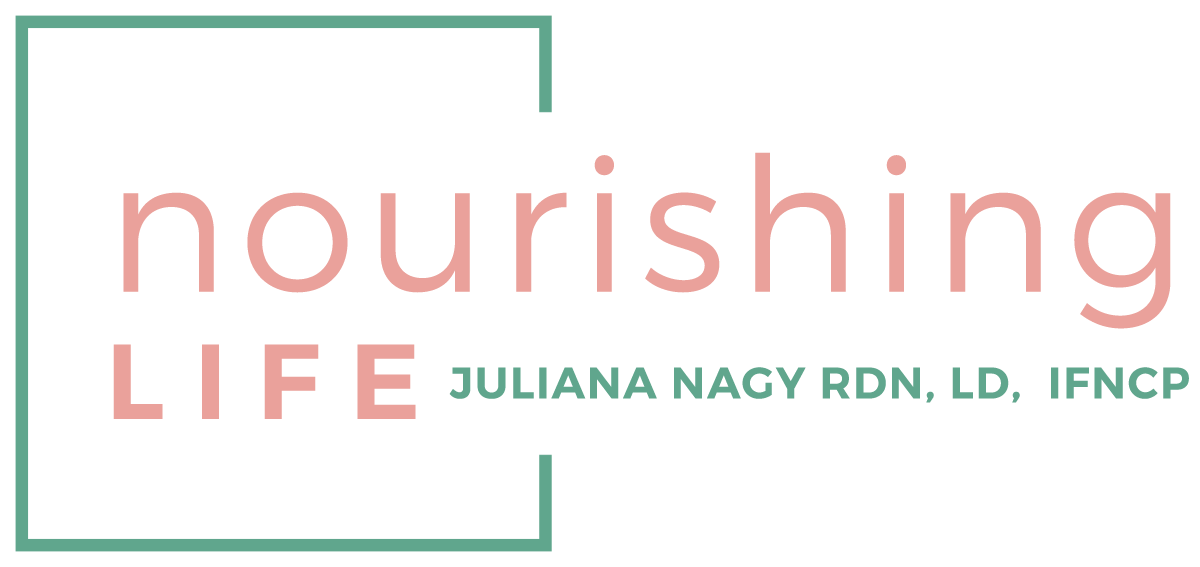It’s no secret that collagen is a hot topic in the field of wellness and nutrition. In fact, in 2018 sales of collagen supplements reached $46.6 million, which was 34% higher than in previous years.
Collagen is not only being sold as a supplement in powder, pill and chew form, but it’s also being added to bars, teas, coffee creamers, and baked goods. Clients are frequently asking me if they should be adding a collagen supplement to their daily regime.
In the quest to always share science-based and practical information with you, I’m diving into this topic. This month, I’m going to explore not only what collagen is, but also why it’s important, what current research is suggesting, it’s safety, and where it can be purchased. Please feel free to respond with any questions you might have.
Before answering the question “Is collagen worth the hype?’, let’s explore a few of the basics:
What is Collagen?
First and foremost, collagen is a protein that makes up about a third of the total protein in your body. It’s the primary building block for your connective tissues including bones, ligaments, tendons, cartilage, skin, blood vessels, and organs. In other words, collagen is the “glue” that helps keep you together.
What Does Collagen Do?
Collagen supports the health of your bones, tendons, cartilage, and muscles, as well as skin, hair, and nails. Aging adults lose about 1% of collagen each year.
While the research behind collagen is still emerging, the current findings support that collagen supplements:
Can help reduce pain associated with osteoarthritis as well as exercise-related joint pain
Have been found to protect against osteoporosis while supporting and maintaining healthy bones
Can help with overall skin elasticity, as well as reduce signs of aging such as wrinkles and dry skin
Is It Safe?
Adding a collagen supplement to your regime does not appear to be associated with any risks or negative side effects. However, as with all supplements, consult your health care provider to confirm it is safe for you. When looking at supplements, look for simple ingredients and for companies with trusted third party labels, NSF or USP.
Where to Find Collagen?
Your body naturally makes collagen by combining amino acids from protein-rich foods with vitamin C, zinc, and copper. Beyond the process of your body making collagen from your diet and because collagen is naturally found in animal products such as chicken and beef bones and feet, bone broth is a good source of collagen.
Worth the Hype?
The research appears to support that supplementing with collagen, especially for people over 40 years old, can be beneficial. When it comes to adding collagen to your daily regime, be sure to read this month's mini-article so you can better understand that supplementing your diet with collagen goes beyond any powder, pill or broth.
Building Collagen - Takes More than Powder, Pills, and BrothThe reality is, the process of making collagen requires more than a supplement. Vitamin C, copper, and zinc are essential for your body to process and utilize collagen.
Vitamin C links the amino acids that are essential to collagen production.
As an antioxidant, vitamin C reduces free radicals which are associated with accelerated aging.
Oranges, grapefruit, lemons, limes, leafy greens, broccoli, and red peppers are all excellent sources of vitamin C.
Zinc, a trace mineral, activates other proteins that build collagen in the body.
Oysters, salmon, pumpkin seeds, eggs, and dark chocolate are good sources of zinc.
Copper, another trace mineral, is converted into peptides when ingested in the body.
This process is essential to stimulating collagen synthesis.
Beans, nuts, dark leafy greens, and shellfish are good sources of copper.
Getting more collagen in the diet from animal sources is great but without these vitamins and minerals, collagen synthesis would not take place. Focus on the “big picture.” Like other body processes, collagen synthesis has many moving parts and a well-balanced diet containing fruits, vegetables, protein, grains, and dairy provides the nutrients to see beneficial effects.

